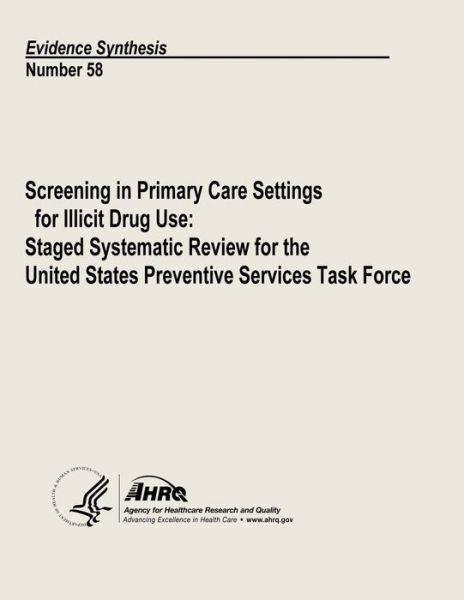
Powiedz znajomym o tym przedmiocie:
Screening for Type 2 Diabetes Mellitus: Update of 2003 Systematic Evidence Review for the U.s. Preventive Services Task Force: Evidence Synthesis Numb
U S Department of Heal Human Services
Screening for Type 2 Diabetes Mellitus: Update of 2003 Systematic Evidence Review for the U.s. Preventive Services Task Force: Evidence Synthesis Numb
U S Department of Heal Human Services
Publisher Marketing: The objective of this systematic review is to examine the evidence for the potential benefits and harms of screening adults over the age of 20 years for type 2 diabetes mellitus (DM2), and for impaired fasting glucose (IFG) and/or and impaired glucose tolerance (IGT) (prediabetes) in primary care settings in the United States (US). The evidence presented will be used by the US Preventive Services Task Force (USPSTF) to formulate clinical practice recommendations. Diabetes mellitus is a group of metabolic diseases characterized by hyperglycemia resulting from defects in insulin secretion, insulin action, or both. DM2, previously called non-insulin dependent diabetes mellitus (NIDDM) or adult-onset diabetes, accounts for 90% to 95% of all diagnosed cases of diabetes. DM2 encompasses individuals who have insulin resistance as well as defective insulin secretion such that insulin levels are insufficient to compensate for the insulin resistance (i.e., a relative, rather than absolute, insulin deficiency). This report examines five Key Questions and three subsidiary questions, which were updated and revised from the prior report: Update Key Question 1. Is there direct evidence that systematic screening for type 2 diabetes, IFG, or IGT among asymptomatic adults over the age of 20 years at high-risk for diabetes complications improves health outcomes? Does it improve health outcomes for asymptomatic individuals at average-risk for diabetes complications? Update Key Question 2. Does beginning treatment of type 2 diabetes in adults early as a result of screening provide an incremental benefit in health outcomes compared with initiating treatment after clinical diagnosis? Update Key Question 3. Does beginning treatment for IFG and/or IGT in adults early as a result of screening provide an incremental benefit in final health outcomes compared with initiating treatment after clinical diagnosis of type 2 diabetes? Update Key Question 4. What adverse effects result from screening an adult for type 2 diabetes or IFG/IGT? Update Key Question 5. What adverse effects result from treating an adult with type 2 diabetes, IFG, or IGT detected by screening? Subsidiary Question 1. What are the yields (accuracy and reliability) of different re-screening intervals among persons with an initial normal fasting glucose? Subsidiary Question 2. What is the yield [accuracy, reliability, and prevalence] of screening for type 2 diabetes with A1c? Subsidiary Question 3. Does beginning treatment for IFG or IGT early as a result of screening decrease the incidence of diabetes compared with initiating treatment after clinical diagnosis?
| Media | Książki Paperback Book (Książka z miękką okładką i klejonym grzbietem) |
| Wydane | 18 czerwca 2013 |
| ISBN13 | 9781490477244 |
| Wydawcy | Createspace |
| Strony | 308 |
| Wymiary | 216 × 279 × 17 mm · 716 g |
Więcej od U S Department of Heal Human Services
Zobacz wszystko od U S Department of Heal Human Services ( np. Paperback Book )

































